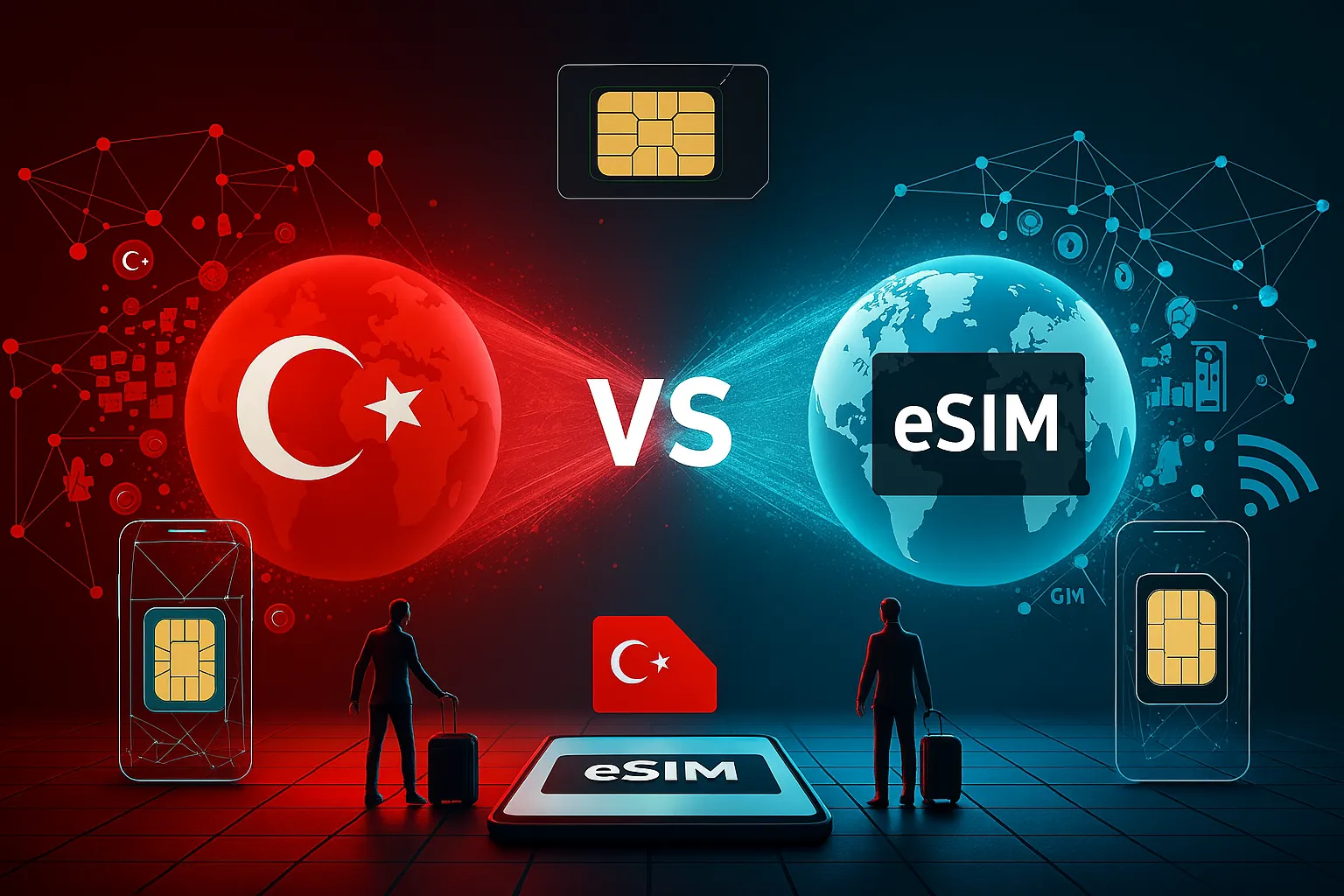Turkey Blocks eSIM Providers, Impacting Global Travelers and Digital Nomads – Focus on Travel News
Turkey blocks eSIM providers, impacting global travelers and digital nomads who rely on seamless internet access while abroad. The country’s recent decision to restrict access to several major international eSIM platforms has sent ripples across the global travel community. With mobile connectivity now considered an essential part of travel planning, this move has significant implications for both inbound tourists and Turkish citizens traveling overseas.
The Information and Communication Technologies Authority (BTK) of Turkey has reportedly taken action to block eight well-known eSIM service providers. Platforms such as Saily, Airalo, Holafly, Nomad, Instabridge, Mobimatter, Alosim, and BNESIM are no longer accessible within Turkish borders. These digital SIM services, known for offering convenient and affordable mobile data, have been favored by international tourists looking to bypass expensive roaming charges or avoid the hassle of buying local SIM cards on arrival.
Why Travelers Choose eSIMs
eSIM technology has become increasingly popular among international travelers for its convenience and flexibility. Unlike traditional SIM cards, an eSIM can be activated remotely, allowing users to download a data plan directly to their smartphones or tablets before arrival. This digital solution offers seamless access to mobile networks without requiring a physical SIM swap or store visit.
With growing demand, services like Airalo and Holafly have built reputations for offering competitively priced travel plans tailored to specific destinations. These platforms enable tourists to stay connected immediately upon landing, often at a fraction of the cost charged by traditional mobile operators.
Blocked eSIM Providers in Turkey
The following international eSIM platforms are now inaccessible from within Turkey:
- Saily
- Airalo
- Holafly
- Nomad
- Instabridge
- Mobimatter
- Alosim
- BNESIM
These services had previously allowed both international visitors and Turkish residents to purchase data plans for use abroad without needing a local provider. The blocking of these websites marks a shift in how Turkey regulates access to cross-border digital telecom services.
How This Affects Tourists and Travelers
Tourists visiting Turkey will be affected differently depending on when and how they activate their eSIM. Those who install and activate their eSIMs prior to entering the country will still be able to use the data plans, as preloaded profiles continue to function even after arrival. However, those who wait until they are inside Turkey to install or purchase an eSIM will encounter access issues.
Similarly, Turkish citizens planning to travel abroad are now restricted from purchasing travel data plans from these platforms while inside the country. This means they will have to rely on physical SIM cards at their destination or pay higher international roaming fees from domestic providers.
Available Connectivity Alternatives
Despite the restrictions, travelers still have several options to stay connected while in Turkey:
- Install eSIM Before Arrival: Tourists can activate eSIM profiles in advance while still abroad. Pre-installed profiles will continue working upon entry.
- Buy a Physical SIM Card: Turkish mobile operators offer SIM cards at airports and city centers. These require passport registration and may include setup fees.
- Purchase a Local eSIM: Some Turkish providers now offer eSIMs for compatible devices, though activation may require visiting a retail store.
These options ensure that tourists can still access mobile data, but may come with added complexity or cost compared to pre-trip eSIM setup.
Implications for Digital Nomads and Long-Term Visitors
Digital nomads and long-term visitors, who often rely on high-speed internet and mobile connectivity to work remotely, may find this development particularly disruptive. eSIMs have long offered them an easy way to switch providers or manage data across borders, without being tied to lengthy contracts or limited physical SIM options.
With the restrictions in place, many remote workers will now have to re-evaluate their mobile strategy when entering Turkey. The move may also discourage some from selecting Turkey as a base of operations, especially if reliable and affordable mobile data becomes harder to access.
Why Turkey Took This Step
The Turkish government has not publicly provided a detailed explanation for blocking the eSIM providers. However, such moves typically relate to regulatory, licensing, or security concerns regarding foreign digital services. As eSIMs bypass traditional telecom infrastructure, they may fall outside local jurisdiction or financial oversight.
This action mirrors a growing trend of governments tightening control over digital services that operate internationally. It also highlights the importance of planning ahead when it comes to digital tools and travel technology.
Tips for Staying Connected in Turkey
For travelers headed to Turkey, it is more important than ever to plan mobile connectivity before arrival. Below are key takeaways:
| Option | Available Inside Turkey? | Recommended For |
|---|---|---|
| Activate eSIM before arrival | Yes | All travelers |
| Buy local SIM card | Yes | Short-term visitors, heavy data users |
| Use roaming from home provider | Yes | Emergency or short use |
| Buy eSIM from blocked providers | No (inside Turkey) | Only before entering country |
For most travelers, the best solution remains purchasing and activating an eSIM prior to arrival. By taking care of connectivity in advance, tourists and digital nomads can avoid potential headaches and stay focused on exploring all that Turkey has to offer.




